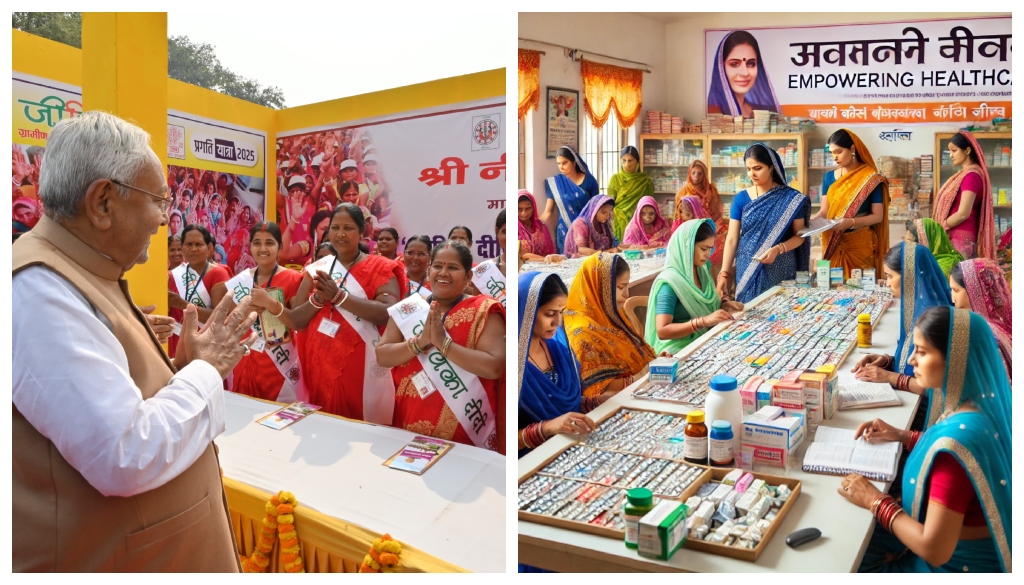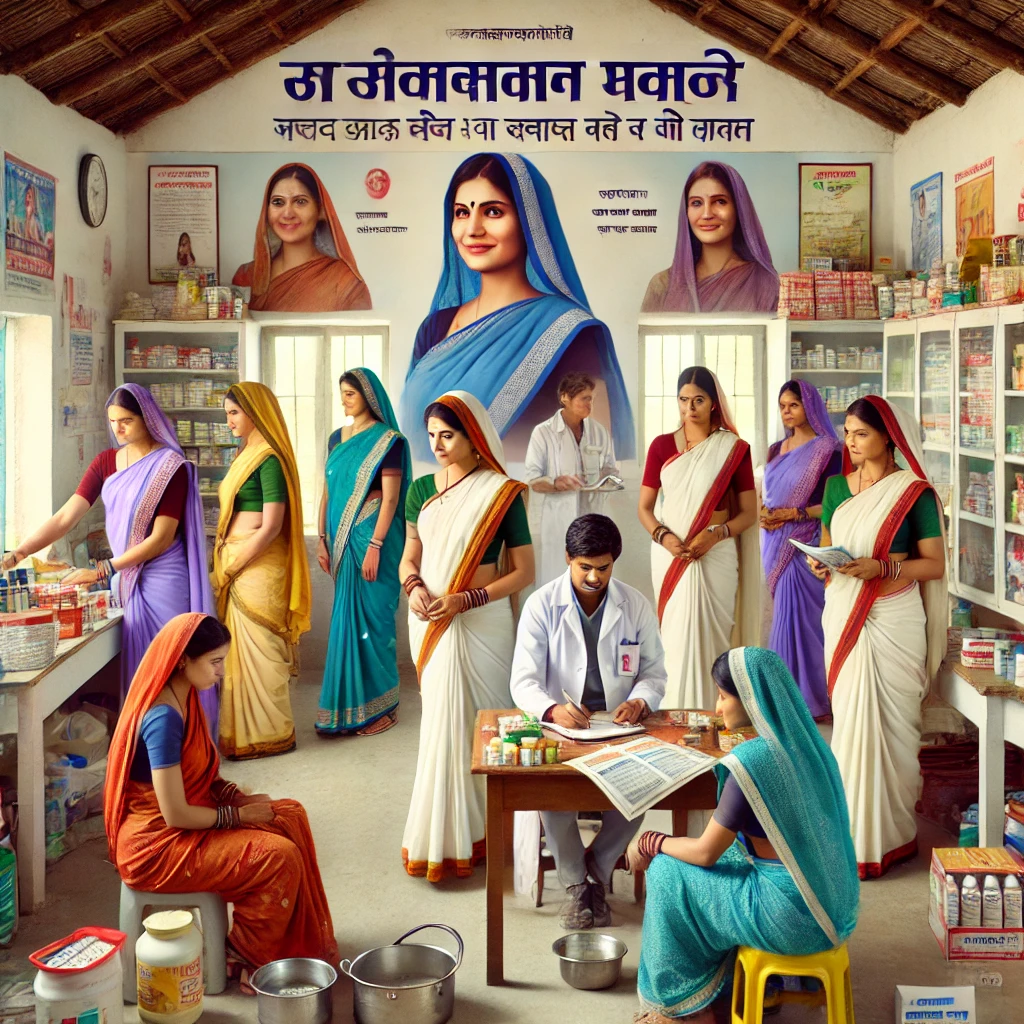Meet Bihar’s Health Warriors: 10 Lakh Jeevika Didis Leading Change

Patna: In a quiet yet profound transformation, over 1 million women in Bihar have become the backbone of a grassroots health revolution. Under the state’s flagship Jeevika project, these women—popularly known as Jeevika Didis—are driving change by providing essential health services, managing Jan Aushadhi Kendras, and spearheading awareness campaigns across Bihar’s rural landscape.
From Self-Help to Healthcare Leaders
Launched in 2006 with the goal of women’s empowerment and self-reliance, the Jeevika project initially focused on skill development and livelihood creation. Today, it has evolved into a powerful health initiative, with 10.12 lakh Jeevika Didis actively contributing to healthcare services across the state. Their involvement spans from operating health assistance centers to distributing affordable medicines under the Pradhan Mantri Jan Aushadhi Yojana.
Currently, 45 health assistance centers are being run by Jeevika Didis, providing crucial medical aid to underserved communities. Additionally, Jan Aushadhi Kendras in Sitamarhi, Nalanda, and Gopalganj Sadar Hospital, operated by these women, ensure that essential medicines remain accessible at subsidized rates. In a significant step towards menstrual hygiene, a plant-based organic sanitary napkin manufacturing unit has also been established in Buxar district.
Swaasth Mitra: A New Role for Rural Women

Jeevika Didis have been trained as ‘Swaasth Mitra (Health Friends),’ a role that involves running awareness campaigns targeting pregnant women, children, and the elderly. These women assist in connecting communities to proper healthcare services, ensuring that critical medical interventions reach those who need them most.
Beyond healthcare, the Jeevika model is gaining national recognition. The initiative now serves as a National Resource Organization for community-based health, nutrition, and hygiene programs, setting an example for other states to follow.
A Vision Rooted in Women’s Empowerment
The success of Jeevika traces back to 2005, when Chief Minister Nitish Kumar introduced a series of ambitious schemes for women’s upliftment. The establishment of the Jeevika Project in 2006 was a turning point, leading to the formation of 10.63 lakh self-help groups, benefiting over 1.35 crore families. The initiative has not only empowered women economically but also positioned them at the forefront of Bihar’s public health system.
Success Story: Manisha Kumari’s Journey from Katihar
Among the many inspiring stories emerging from this movement is that of Manisha Kumari from Katihar. Once an ordinary woman in her village, she is now a trained Health Friend providing medical services to her community. Earning a monthly honorarium of Rs 12,675, Manisha’s role has been pivotal in strengthening local healthcare.
Having received training from AIIMS Patna, she now operates from an office within Sadar Hospital. Over the years, she has assisted thousands of patients, becoming a trusted figure in her community and a testament to the impact of Jeevika.
The Road Ahead
With more women joining the movement, Bihar’s healthcare landscape is undergoing a radical shift. The Jeevika model is proving that grassroots participation can lead to systemic improvements, turning self-help groups into pillars of social change. As these women continue to bridge gaps in healthcare access, their story stands as a testament to the power of collective action and women’s leadership in public service.





